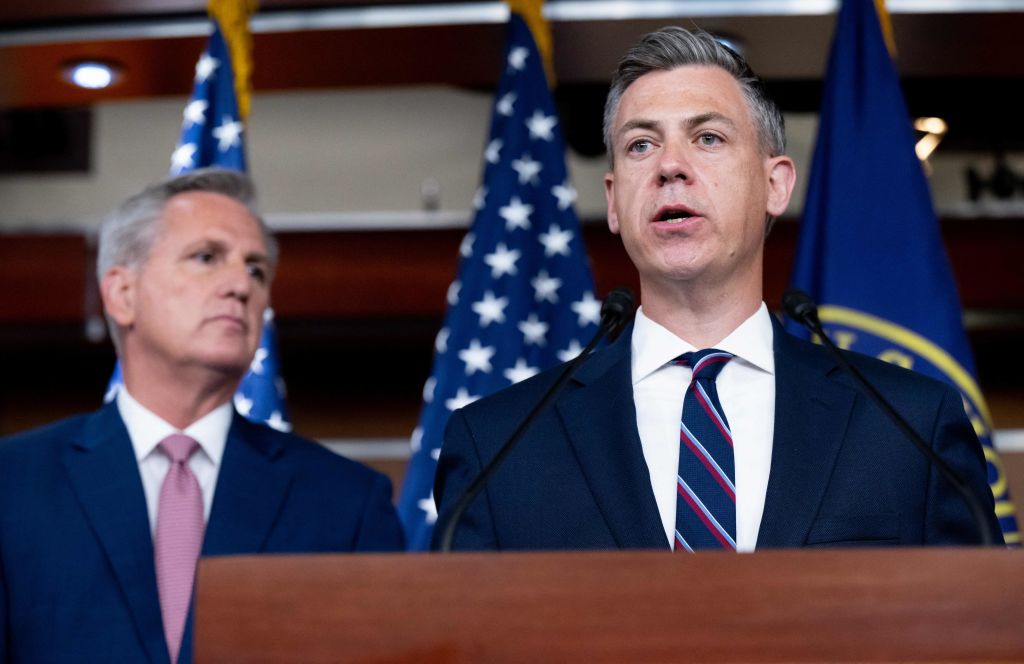Toward a Citizen Economics

Travel in certain circles and you will hear people lament the dearth of fiscally conservative, socially liberal political options. That’s the logic driving former Starbucks CEO Howard Schultz to explore an independent presidential bid, for example. Anecdotally, on careful examination the social liberalism of these voters is normally more pronounced than their fiscal conservatism. Empirically, they are not as numerous are they would have you believe.
Among members of Schultz’s former political party, the Democrats, a CNN/SSRS poll finds the decaffeinated centrist with a net favorable rating of minus 17 points. Perhaps that’s to be expected in the party of the Green New and revivified democratic socialism. But what if even among Republicans a lot of what passes for fiscal conservatism is a really a form of social conservatism, a more ecumenical or secularized version of the Protestant work ethic? And what if rank-and-file members of both parties are less globalist than their leaders and donors?
These aren’t exactly the questions Dan McCarthy grapples with in his perceptive First Things essay on a new conservative agenda, but the discussion he has started may nevertheless help answer them. Bill Clinton won states that hadn’t gone Democratic since Jimmy Carter by promising an economy for everyone who worked hard and played by the rules. Donald Trump took states that hadn’t voted Republican since Ronald Reagan by vowing to put America First.
Clinton manifestly failed and the jury is still out on Trump, though both have presided over solid economic booms. Without some kind of American nationalism, the country will lack the solidarity required to make a bigger welfare state sustainable—and a return to something approaching constitutionally limited government even possible.
Many Republicans fervently hope that whenever Trump leaves office, everything will return to normal. Indeed, the president’s most obvious successors inside the GOP are Vice President Mike Pence, an old-guard movement conservative, and former United Nations Ambassador Nikki Haley, more or less a George W. Bush Republican.
But a party that is dependent on the votes of Social Security and Medicare recipients is going to have a hard time passing the Paul Ryan agenda. Neoconservatism unmoored from nationalism has little appeal. Defense contractors, military service members and law enforcement officers, farmers receiving agriculture subsidies, and a beleaguered white working class—the GOP is no less the party of government than the Democrats.
Conservatives who excoriate Trump, much less Alexandria Ocasio-Cortez, need not abandon their principles but they must grapple with these political realities. Instead many speak dismissively of their own voters. Imagine if Nixon and Reagan-era Republicans had ignored crime and welfare—legitimate issues that could easily bleed into racial demagoguery—the way so many of their successors accept the Left’s framing on immigration and globalism.
Observing, as McCarthy does, that the “way forward requires refocusing on the American citizen as the basic unit of the economy” is not as detailed the Ryan roadmap. Policy-wise, it is not clear that immigration reforms (which I support) and tariffs (of which I am more skeptical) alone will get us there. But philosophically, it is a good and important place to start.
The American Mind presents a range of perspectives. Views are writers’ own and do not necessarily represent those of The Claremont Institute.
The American Mind is a publication of the Claremont Institute, a non-profit 501(c)(3) organization, dedicated to restoring the principles of the American Founding to their rightful, preeminent authority in our national life. Interested in supporting our work? Gifts to the Claremont Institute are tax-deductible.
What it will take to break the deep state.
The Fairness in Higher Education Accreditation Act attacks wokeness at its core.
The House Anti-Woke Caucus is rooting out wokeness in the federal government.
Some words of advice for Jim Banks's new anti-woke caucus.
The Biden administration has adopted a posture of compliance and appeasement toward Beijing.






